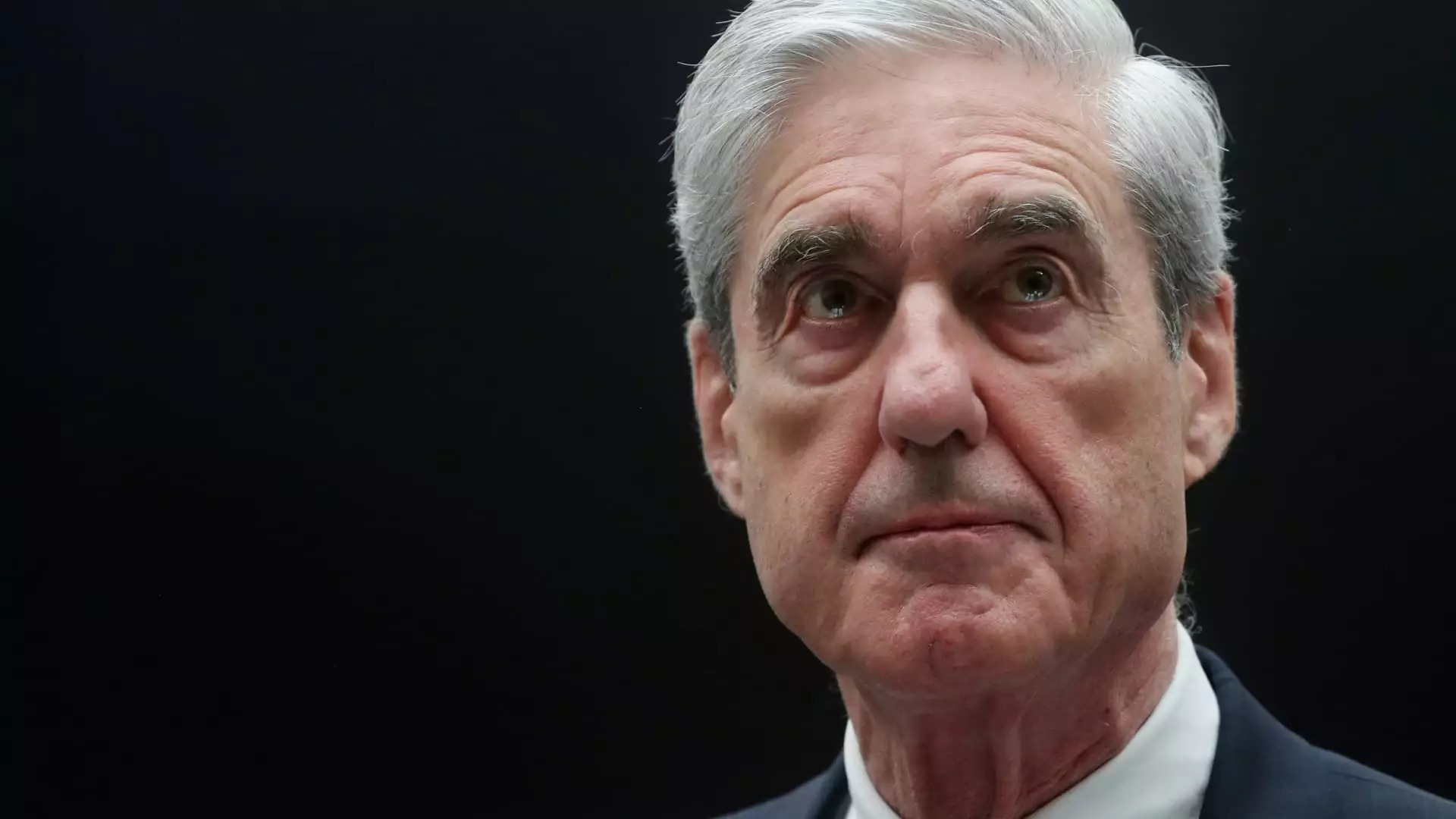The recent termination of Peter Carr, a longstanding former spokesman for high-profile special counsels Robert Mueller and Jack Smith, raises profound questions regarding the integrity of our Justice Department. Dismissed by Deputy Attorney General Todd Blanche, who has his own controversial history related to Donald Trump, Carr’s firing appears to be yet another narrow brushstroke on the ever-changing canvas of political influence over judicial processes. A deep dive into this incident reveals far more than a simple personnel change; it speaks volumes about the precarious balance between law and politics in contemporary America.
The Tale of Two Investigations
Carr’s journey through the tumultuous political landscape began with Mueller’s investigation, which aimed to uncover Russian interference in the 2016 presidential election. The Mueller probe, in its exhaustive pursuit, scrutinized Trump’s campaign ties to potential collusion with foreign entities. While Mueller’s findings did indicate extensive attempts by Russia to interfere in the election, the ultimate conclusion did not satisfy all factions. Indeed, the report muddied rather than clarified the waters; it explicitly stated that there was insufficient evidence to charge Trump, but also refrained from clearing him entirely. As Mueller himself so rightly noted, his investigation aimed to avoid the constitutional quandary of charging a sitting president, which left a lingering cloud of uncertainty—a troubling precedent in American governance.
When it comes to Carr’s role in these investigations, his tenure was laced with both significance and irony. He spoke on behalf of an investigation that cast a shadow over the integrity of Trump’s presidency, yet he now finds himself on the other side of the political fence with the very dismissal that seems to echo elements of executive retaliation—an unfortunate and damaging trend within our governmental institutions.
The Underbelly of Politics
Francis Bacon posited that “knowledge is power,” but can we argue that the politicization of knowledge—especially in law and governance—begets profound consequences? The Justice Department’s recent practices raise alarms: it appears we are in an era where political payback may override fair treatment. Carr’s firing was not simply a matter of administrative efficiency; it represents a disturbing trend where ideological loyalty supersedes professional merit. With Blanche’s previous representation of Trump, one cannot help but sense an unsettling conflation of the personal and the political in what should ideally be a non-partisan justice system.
The mere removal of an individual who synthesizes complex legal and political narratives should raise eyebrows—not just amongst the press who relied on Carr for insights but amongst all citizens who care about accountability. The Justice Department has started to reflect more of a political wing than the apolitical institution envisioned by the founding fathers. Such actions evoke fears that our legal frameworks could become weapons for partisan objectives—an alarming erosion of the rule of law.
A Legacy Complicated by an Uncertain Future
As Carr transitions into the realm of the unemployed, the broader implications beg to be analyzed. This episode is not just about one person’s job; it symbolizes a significant degradation in the values that empower our legal structures. The firing signals to other DOJ employees that loyalty to the political party in power may now take precedence over the integrity of legal processes. It raises the question: Who will step forward to uphold justice when the stakes involve surviving political allegiance instead of pursuing impartiality?
This complex and dire narrative grows increasingly convoluted when considering subsequent investigations headed by Smith. Remember that these investigations have not merely been trivial administrative exercises; they are monumental inquiries that hold the potential to redefine the contours of American democracy. Underneath the bureaucratic changes, there’s an enduring question about whether Justice will play an unbiased role or serve as a political chess piece. The implications for our democratic institutions are vast and troubling—this does not merely chill free inquiry but outright stifles it.
As we witness this evolving saga, one can only wonder how the narrative will unfold. The question remains whether we will return to an America where justice, absent of political pressures, prevails. In a democratic society, citizens must demand accountability at every level to ensure that justice is not just a political construct but a living commitment to fairness, equity, and truth. The stakes could not be higher.

